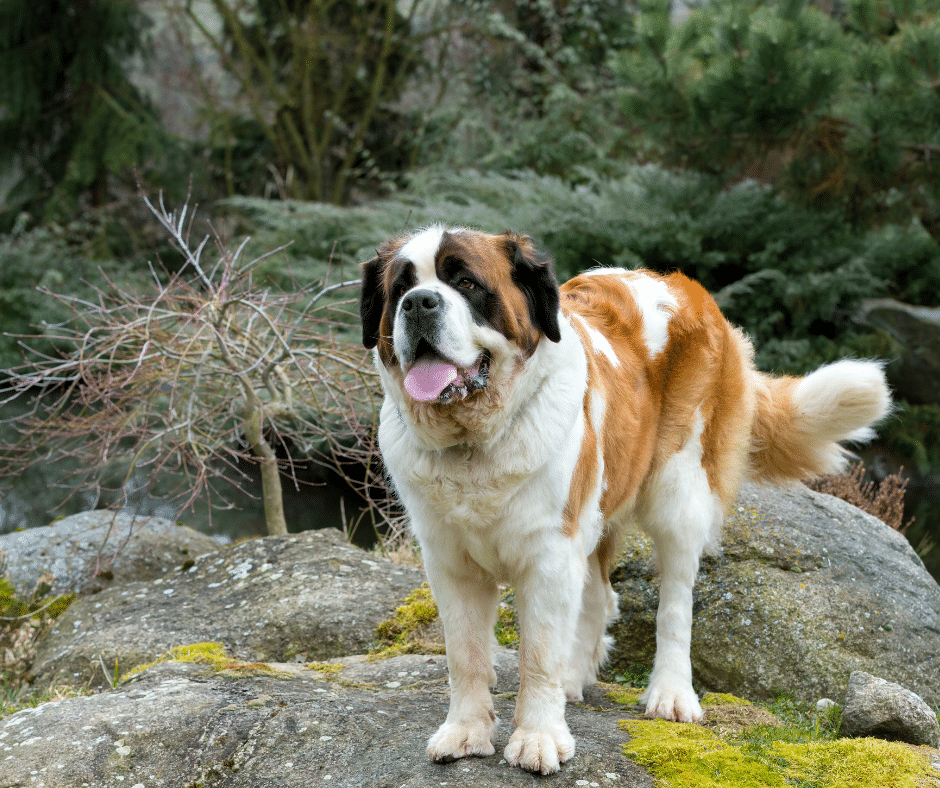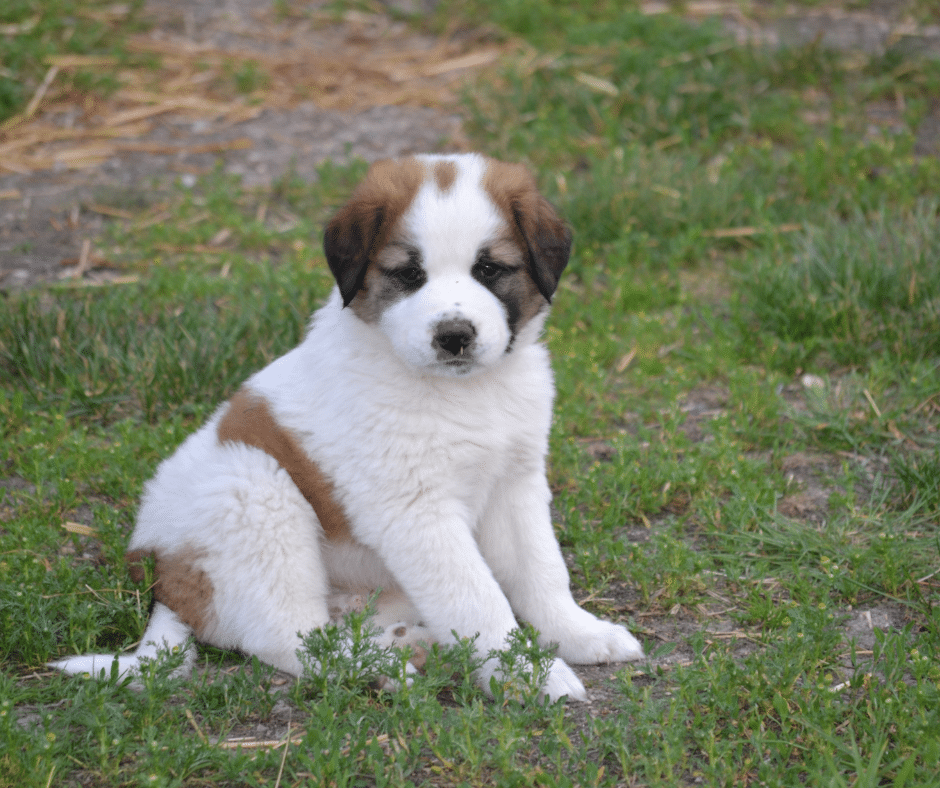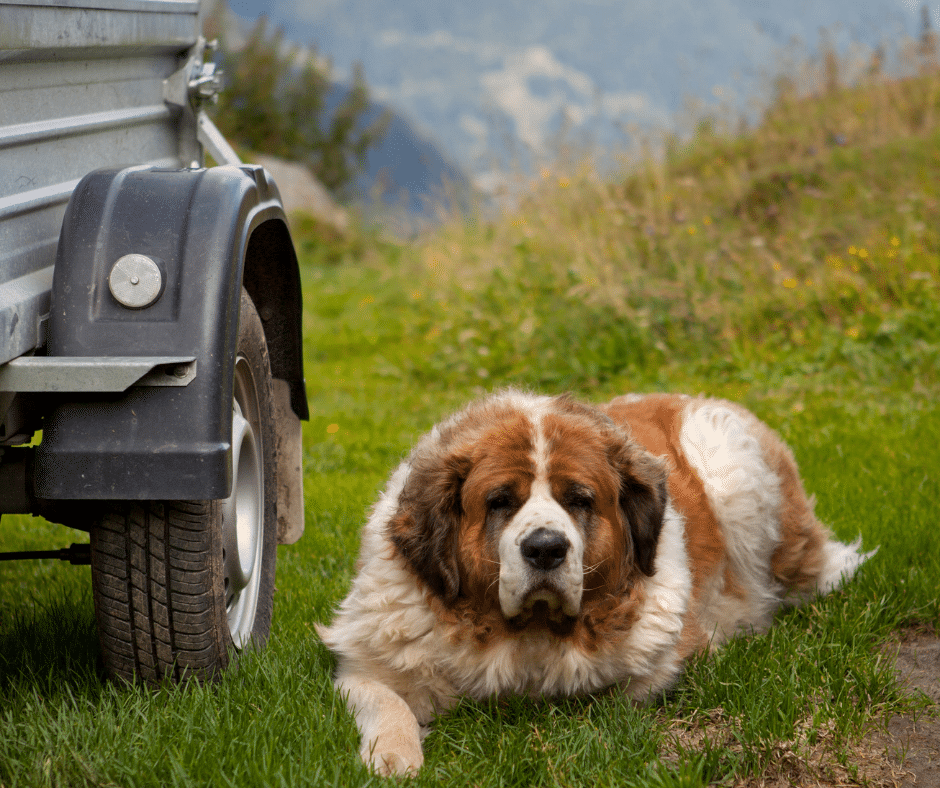Saint Bernards are large, gentle dogs that can be traced back to the Swiss Alps. They were bred for rescue missions and helped locate people who had fallen into snow holes or avalanches.
The Saint Bernard was first recognized as a breed in 1884 by Switzerland’s kennel club, but these dogs have been around much longer than that. In fact, it is believed they descended from mastiff-type dogs brought to Europe by Roman invaders more than 2,000 years ago.

The word “Saint” was added later because of their association with hospice care in the alps region of Switzerland and northern Italy during the middle ages when Alpine travelers would bring them along on their journeys as a source of food and protection from wild animal attacks.
In those days, the hospice monks began to breed these dogs as a means of companionship and to serve as guard dogs for their establishments. In time, they became known as “Saint” Bernard – Saint because of their association with the alpine monasteries, where Saint Bernard is also the patron saint, and “Bern”ard in reference to the dog’s place of origin.
The Saint Bernard was recognized by The American Kennel Club in 1885. They were the 35th breed to be acknowledged.
Are St. Bernards lazy dogs?
St. Bernards are generally friendly and calm, although they do need daily exercise to remain healthy and to maintain their muscle tone.
However, it is important not to overdo the exercise as the breed was originally intended for search and rescue missions, where they would spend long periods of time in below-freezing temperatures. Therefore, St. Bernards are more susceptible to hypothermia than other breeds.
The Saint Bernard is not suited for apartment living. These dogs need room to move about freely and should be given at least an average-sized yard in which they can run and play.
Don’t these dogs drool?
Saint Bernards are big, heavy droolers. The average adult St Bernard can produce up to 5 gallons of saliva in just one day.

Is St. Bernard a good family dog?
Saint Bernards are giant dogs, which means that their size often makes them poor choices for families. However, if raised with children and socialized early on, they can become good family pets—just keep in mind that families with small children might want to consider another breed.
When properly trained and well-socialized, Saint Bernards are gentle, patient dogs that are good with kids. However, they do have a stubborn side and can be difficult to train.
Saint Bernards need regular exercise because of their large size and energy levels. They should have well-fenced yards in which to run and should not be left cooped up all day alone.

In conclusion, Great Danes, Mastiffs, and Saint Bernards are often referred to as the “gentle giants” of the dog world. Saint Bernard dogs make great companions for older children who know how to display good behavior around animals.
